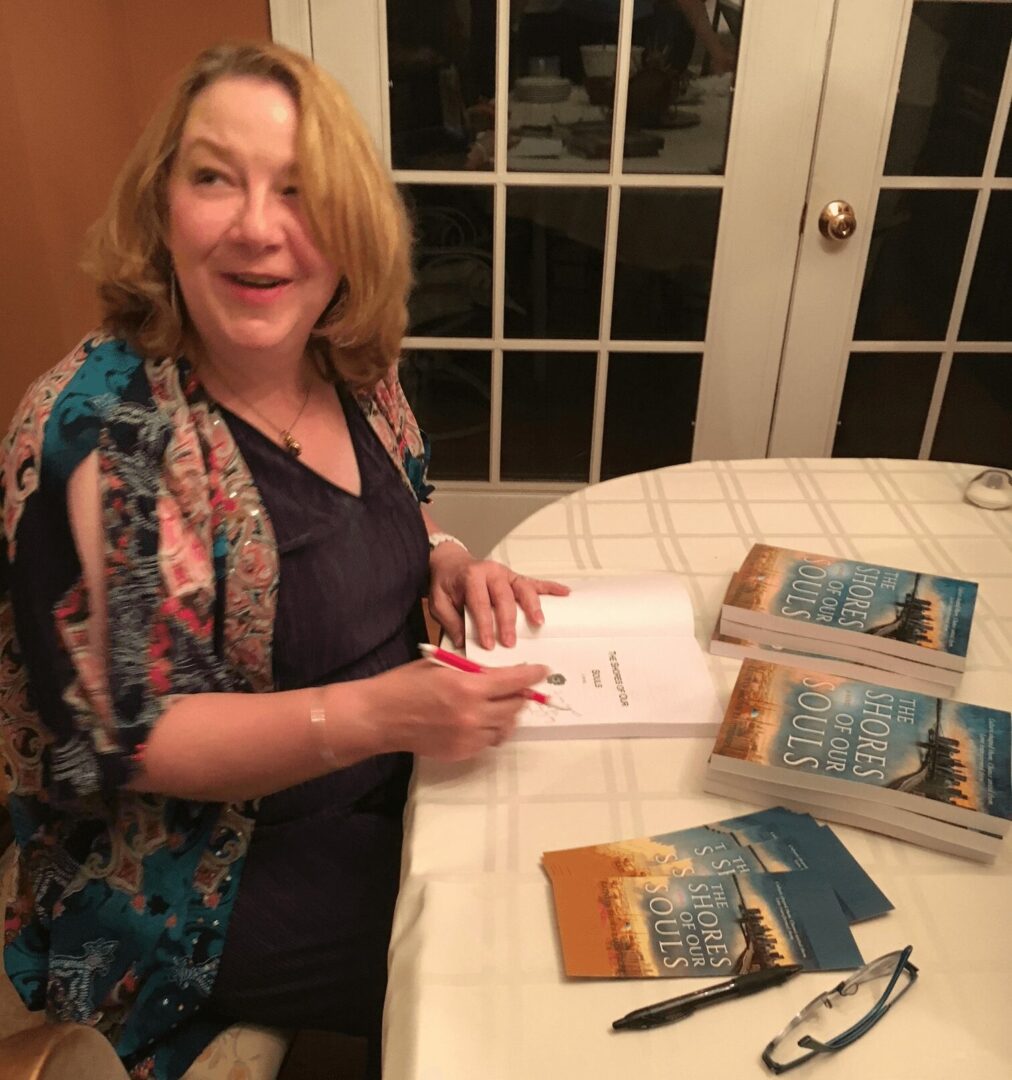We’re excited to introduce you to the always interesting and insightful Kathryn Brown Ramsperger. We hope you’ll enjoy our conversation with Kathryn below.
Hi Kathryn, appreciate you sitting with us today to share your wisdom with our readers. So, let’s start with resilience – where do you get your resilience from?
I learned resilience along the road of life. Like Robert Frost’s poem, I usually choose the “Road Less Traveled.” Sometimes that path was a short cut, and other times I needed a figurative machete to slash my way out of a jungle of my own making.
My first lessons in resilience were from my childhood. My parents grew up on South Carolina farms during the Depression, and World War II changed their outlook on life. They were incredibly resilient and smart, and they forged a life in their 30s that bought us a nice split level home with two cats and a dog. We were a common middle class family until I was 12. That year my mother came home telling us she had “Parkinsons” and would need to be on an experimental medicine that would cross her blood brain barrier. It changed our lives forever.
I thought she was exaggerating, but she wasn’t. Over the next few years, she had mood swings, suicidal ideation, violent behavior, and eventually, hallucinations. My brother and I didn’t know “who” to expect each afternoon when we came home from school. Was it the cookie chairwoman for the Girl Scouts or the woman who hid a butcher knife in her bed because she was certain a gang member had invaded the house? My father was working hard, but insurance said Mama had a pre-existing condition and denied her medicine, as it was experimental (Levodopa, which is the common medication used today). So we became people who gave the cashier at the market food stamps. I answered the bill collector’s phone calls, lying to them about payments in the mail. Soon we were homeless. and moved in with my grandmother two states South. Her farmhouse had a bathroom with cardboard walls, two propane heaters, three fireplaces, and a well that didn’t work well. All my father’s earnings went to my mother’s meds.
I was the girl, and so my dad requested I stay home as caregiver while he worked outside for better income. For some reason, my intuition told me that wouldn’t work. I dug in my heels, went to college, and began a journalism career at 21. I supported my family, emotionally and financially, until my parents passed away in 2001 and 2003. My mother lived 35 years with Parkinson’s, outliving my father. Her nickname was “Eveready Bunny.” As I settled their affairs after death, bill collectors were calling me again. I’d made sure there was a will, but all they had left was credit debt, their clothing, and a rundown car. (The government did not allow my father to save any money. He was allowed a house and a car).
My father always used to say, “Everyone has problems, Miss Muffet (his nickname for me). It’s what you do with them that matters.” I carry his words with me as I write and live. I hope I did right by my family. I still look back and wonder what would have happened if I hadn’t earned the income that they needed to survive. I was “building our plane as I flew it” from a young age. Yet I’m stronger and wiser for it, and no problem seems insurmountable to me. My parents taught me resilience by example, then by default. I had to grow up a little faster than some, but it’s made me stronger, given me vision for the long-term, molded me into someone who cares for humanity, because you never know what challenge they are facing. I’ve made mistakes, gone down some dead-end alleys, fallen flat on my face a couple of times, faced some risks. I’ve survived deaths of two of my unborn children, melanoma, and hemorrhage, as well as the few years I ate rice and peanut butter because they were the cheapest foods I could find in a big city.
My father refused to live with my husband and me in his last years. He wanted to stay put. He lived “too far out” to receive Meals on Wheels, the representative we met with told us. “What was it like having your wife suddenly ill?” she asked him. I couldn’t tell if her tone was curious or empathetic. Perhaps both.
I’ve only seen my dad weep twice, once when my mother lost a baby. This was the second time. “Devastating,” he said.
And yet, with a few scars, we dusted ourselves off and carried on. I’m the better for it. I hope the stories I brought along with me help others face the worst, survive it, and then go on to thrive.
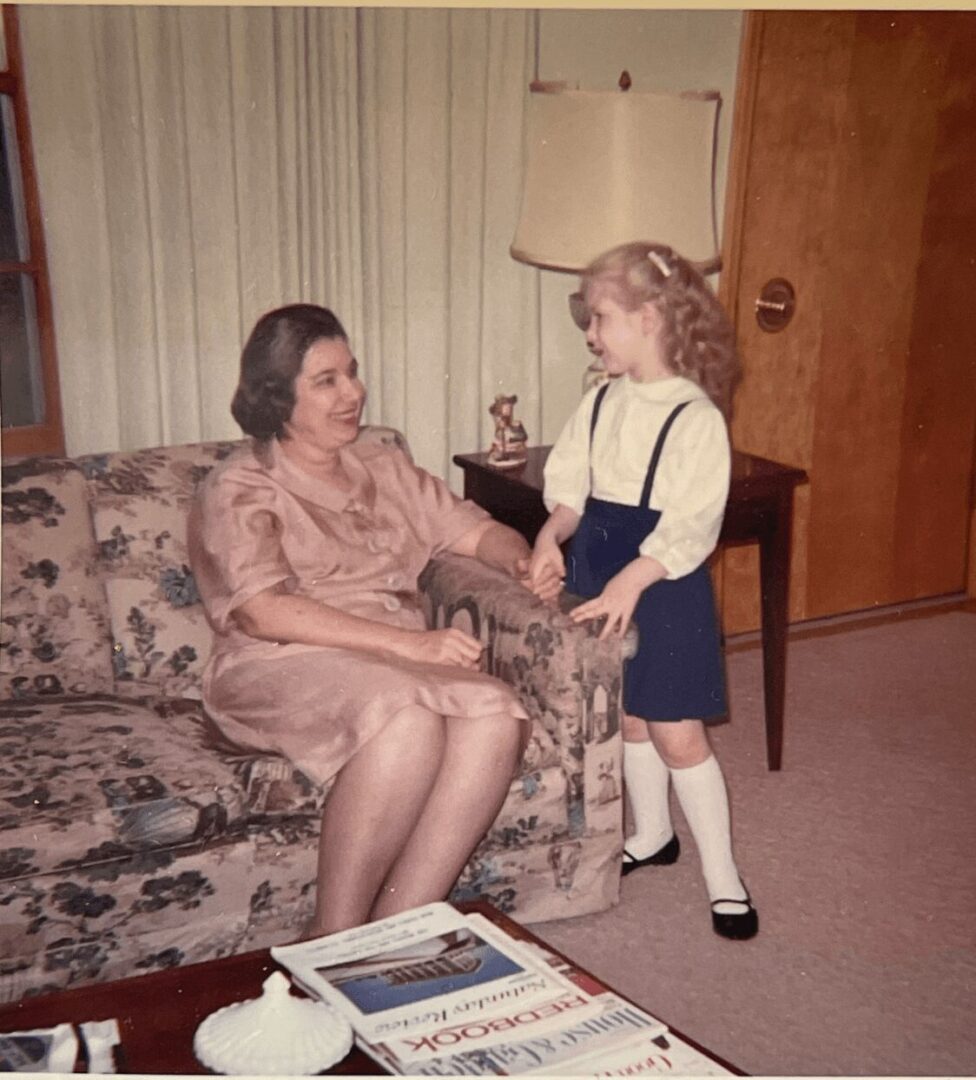
Appreciate the insights and wisdom. Before we dig deeper and ask you about the skills that matter and more, maybe you can tell our readers about yourself?
I’m a lifelong writer. I love my work because I am never bored with writing, investigating, interviewing, researching, and most of all, travel. My writing career has allowed me to experience the world and meet some of the most courageous people I’ve known. I’ve also been witness the horrors war can bring, the homelessness one match can result in, the financial crisis an illness brings with it, the heartache leaving one’s country and family can imprint on the soul.
I started out working for my local newspaper, got a job with National Geographic, then went on to work for the International Red Cross & Red Crescent all over the world. After my kids were middle schoolers (my husband and I are parents of one biological and one adopted child), I started my own business, first consulting, then added coaching. A home-based business, which permitted me to work at noon, midnight, or 6 am, allowed me to finish, publish, and market two of my novels. They’ve won awards. One has been a bestseller on Amazon. The best part of writing though is reaching people, hearing how a piece of writing changed the way a reader saw the world, or their life. I want to spend the rest of my life writing and publishing books.
My focus now is on my two award-winning novels about a man and a woman whose love stays alive over years, obstacles, continents, and both cultural and familial judgment. Qasim is a Lebanese Muslim U.N. official, fleeing war in his homeland, and Dianna is a researcher for the Met. They meet one misty night under a disco ball in a smoky Manhattan bar, and accidentally fall in love. The timing isn’t right, but they transform each other’s lives and catalyze each other’s journeys. They bump into each other again, though, and their love is easily rekindled. Yet this time they are in Africa, and Dianna is trying to save a young child in S. Sudan. What will she choose? She believes she knows best, but things are not what they seem…
You can travel along with them, from Beirut to Nairobi, from New York to North Carolina, and back again. A Thousand Flying Things is available online and at indie bookstores, and The Shores of Our Souls has a second edition coming out soon. You can get a taste of both characters and their stories at Book Funnel or at my website.
You’re also invited to listen to my podcast interviewing authors with transformative stories from all over the world. It’s available on You Tube now, but will soon relaunch across the web as “Humanity’s Greater Story.” You can sign up on my email list to see when it first airs and to savor some recipes from the places in my novels.
I’m working on my memoir as we speak. It’s about my journey from abundance to rags and back again, the fear I felt, the good decisions I made anyway, and the love that almost derailed it all. Its working title is My First Fiance.
My most recent podcast appearance was on Bobbi Jean and Jim Bell’s “Rendezvous with a Writer” in Feb. 2025, and I’ll be speaking at my aluma mater Hollins University in May 2025. Yet as a writer, you never know what adventure is coming just around the corner.
Find out about all of it at https://kathrynbrownramsperger.com or @kathyramsperger. Hope to see you there.
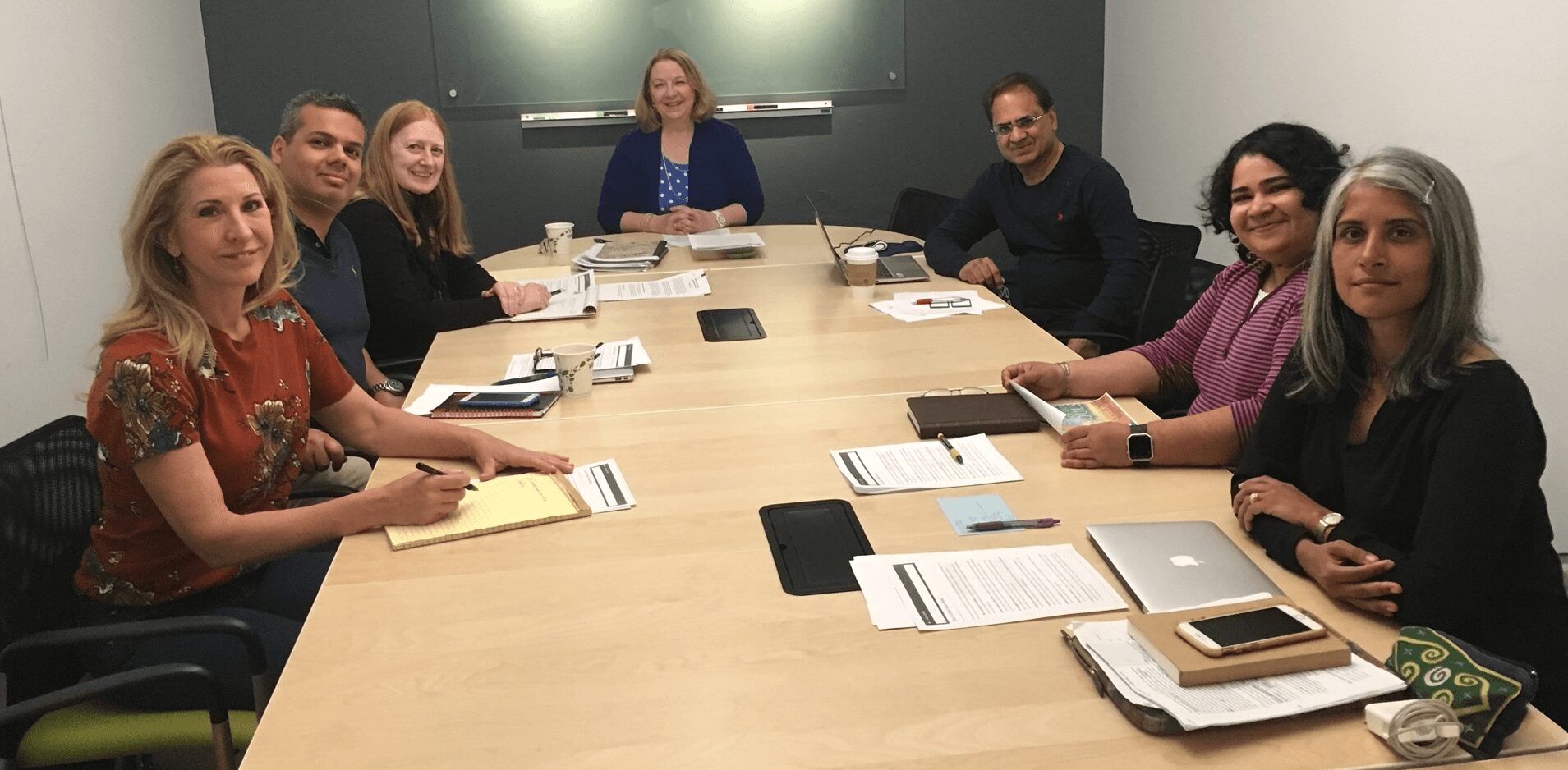
There is so much advice out there about all the different skills and qualities folks need to develop in order to succeed in today’s highly competitive environment and often it can feel overwhelming. So, if we had to break it down to just the three that matter most, which three skills or qualities would you focus on?
Communication. I’ve been communicator in all its forms–from interviewing to anchoring to reporting to negotiating to directing a publishing department. I believe the most essential, and often overlooked communication skill is listening, preferably active listening, which ensures what you think you heard is what the person you’re speaking with is saying. All communication is dialogue, not monologue.
Telling My Truth. It’s my belief that our stories shape who we are, but we often keep them secret because we feel vulnerable. My mother kept her illness a secret, and so people created their own stories about us. She burned her writing, and so I’ve never seen it. Her actions, and her hidden stories, made me into a writer. I vowed to always be transparent and as honest as possible, realizing that all I say is my story, my perspectives and opinions, not someone else’s.
Non-judgment and Neutrality. I still align with the Red Cross and Red Crescent fundamental principles. People have differences, but we can try to understand them if we don’t feel there is only one way, one path, or if we don’t let fear come between us. My character Qasim was born in Lebanon during World War II, and he has never known a stable peace. His counterpart, Dianna, the first daughter in a military family from the American South, has faced her own family’s instability and conflicts. My two protagonists are attracted to one another, because of their similarities, not their differences. Together, they can do great good in the world, but can they make their love work in a world that doesn’t support it? If we can ground into what we have in common instead of what separates us, we have a chance at healing, and eventually, peace with each other and within ourselves, which it’s my hope will continue to expand throughout the world.
(FYI: Humanity, impartiality, neutrality, independence, voluntary service, unity and universality: these seven Fundamental Principles sum up the Movement’s ethics and are at the core of its approach to helping people in need during armed conflict, natural disasters and other emergencies. I worked for them for 25 years and still volunteer for them.)
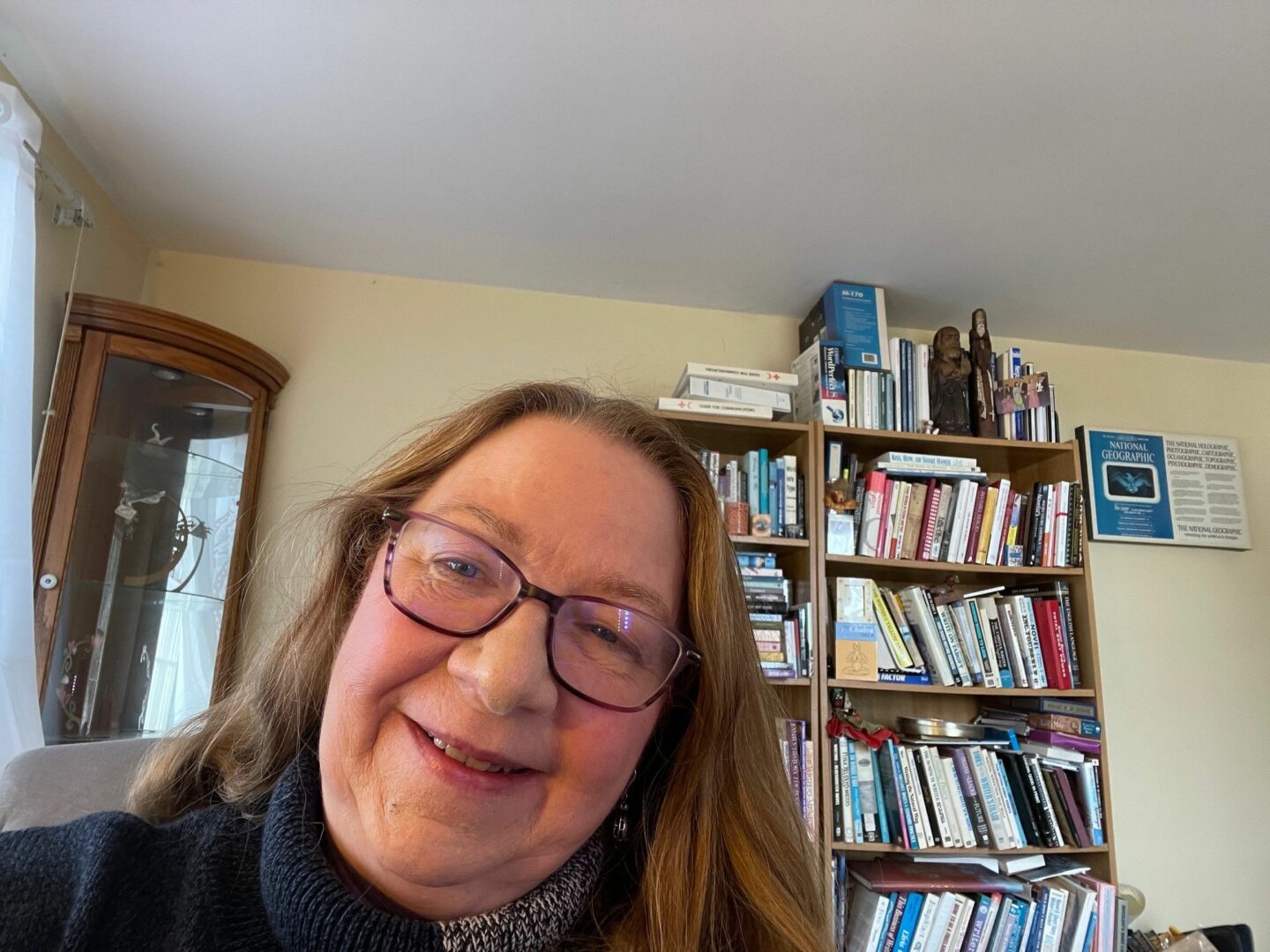
What do you do when you feel overwhelmed? Any advice or strategies?
There’s a reason I titled my novel A Thousand Flying Things. I often have choices and demands flying every-which-way around me, some chirping, “Choose Me!” Others, drifting past in the background like a slow-moving, steady stream. It’s important to choose the ones that beckon to you, no matter how quietly, instead of listening to only the shouting, whirling daily demands with deadlines and FOMO attached.
“Better a bird in the hand than a thousand flying things,” the Sudanese proverb goes, much like the American one. My protagonist Dianna is faced with a multitude of decisions, some personal, some professional, some risky, some life-changing. Our choices can seem like all those flying things. Here’s how I can detach for a moment to feel into the right way to head.
I don’t look back with self-judgment. I realize that I did the best with what I had at the time. Regret will only lead to self-doubt in the next decision. (But that doesn’t mean you don’t apologize if needed.) Instead, I use my past to build my future. What worked? What didn’t?
I plan as well as I can with the best of intent for all, but if it doesn’t work out, I don’t berate or belittle myself.
I don’t let fear rule my life. I’m a fearful flyer, but I still step onto planes because I want to see the world. I let my curiosity drive, not anxiety.
Here’s how you can choose:
Make a list of pros and cons. Look at the option with the longer list of advantages as a probable path. Then sleep on it. Your intuition will tell you what to do the next morning.. Sometimes you have to take risks.
Consider timing in your decisions. It’s possible to do it all, but you can’t do it all at once.
Remember the only wrong decision is not to do anything. That is a choice in itself, with its own consequences, usually negative. Take a step forward, then another. Pretty soon you’re on the road, even if it’s rocky, which will lead to success.
Record you life in writing or audio. Without judgment, use past decisions to guide future ones. You think you’ll remember, but you won’t. If you never look at that journal again, it’s a legacy for your adult kids, so they can come to know you better, and you can guide them through the brambles long after you’re gone from the physical.
Travel if you can to broaden your perspective and realize gratitude. Help others along the way if possible.
Stop feeling sorry for yourself. Hardship makes us stronger. Challenges expand us. Life molds us, and if you let it, it’ll give you self-confidence, faith in yourself, and hope for the world.
I didn’t create my life all by myself. I’ve had support all my life. My parents gave as much as they could, and a lot of sage wisdom. Today, my husband and adult children give amazing advice. If you don’t have a friend or family to reach out to, find a professional to support you, a group to join, online or off.
Remember what my dad told me. “Everybody has problems. It’s what you do with them that makes the difference.”
Finally, Meditate. It’s in my quiet, still moments that feed my clarity.
***
Captions for photos that follow, fyi, just in case you have questions: Mama and me a few months after my brother was born, 6 years before her illness; I teach fiction, nonfiction, and creativity classes; A typical workday with my books and the first New York Times/National Geographic ad I researched in background; Getting ready to host my podcast…the boxes behind me figure as (symbolic) MacGuffins in my novels; Accepting an International Book of the Year Award; My second novel’s launch; DC Writer’s Conference, 2024; My last trip to Lebanon a few weeks before its 2006 war; I still do work for the Red Cross and other humanitarian organizations.
Contact Info:
- Website: https://kathrynbrownramsperger.com
- Instagram: https://www.instagram.com/kathyramsperger/
- Facebook: https://www.facebook.com/KathyRamsperger/
- Linkedin: https://linkedin.com/kathyramsperger
- Twitter: X/com/KathyRamsperger/
- Youtube: https://youtube.com/https://youtube.com/playlist?list=PLejoLrTF4kWuxlsYddgiKg81q-O05xdJ2&si=XB8VaGJPQ2HK2O1Y
- Other: https://www.tiktok.com/@kathyramsperger5
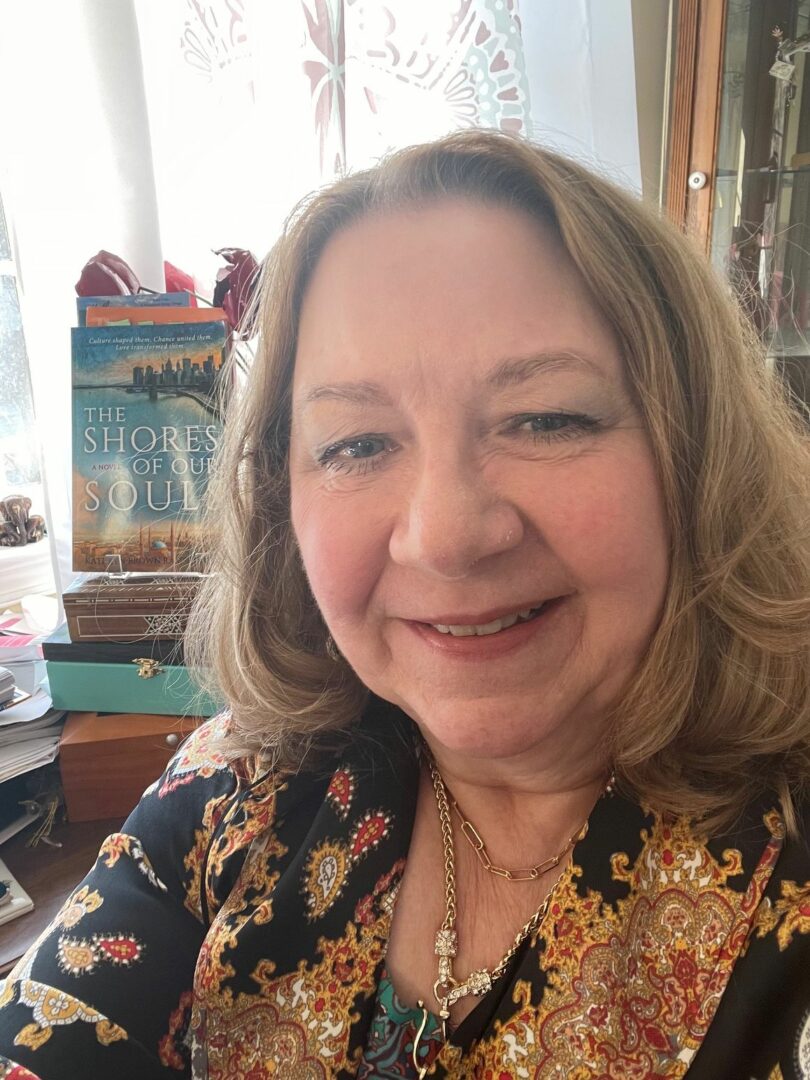
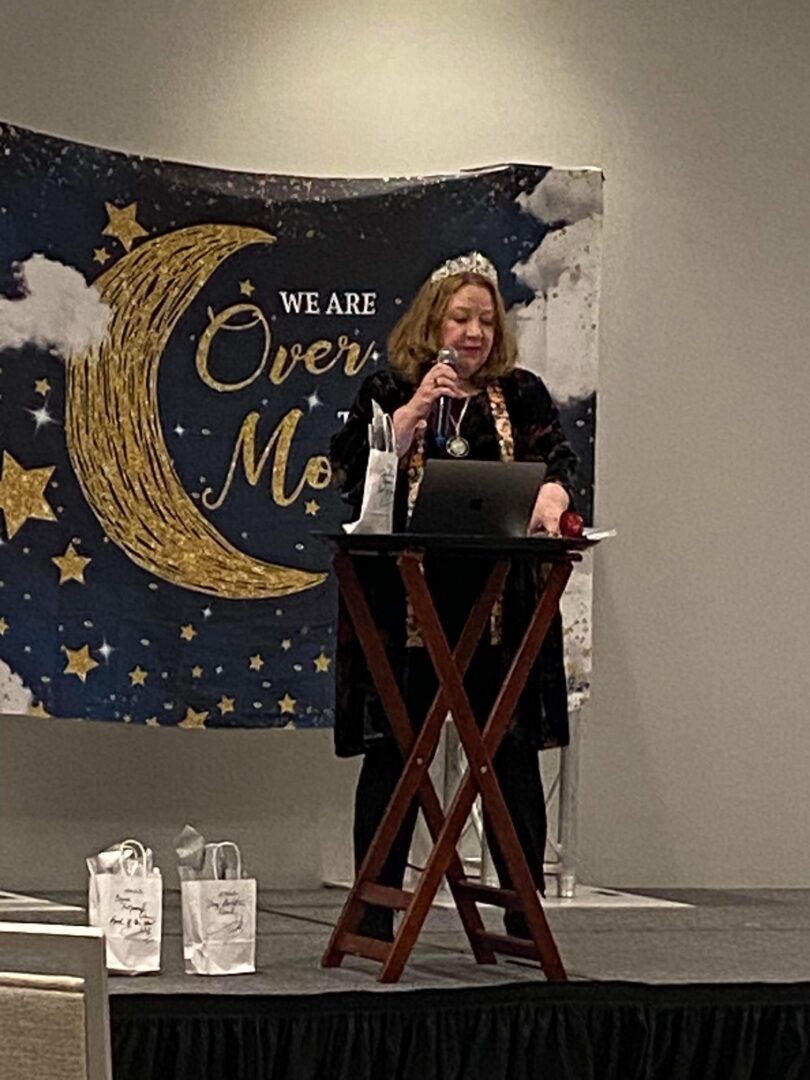
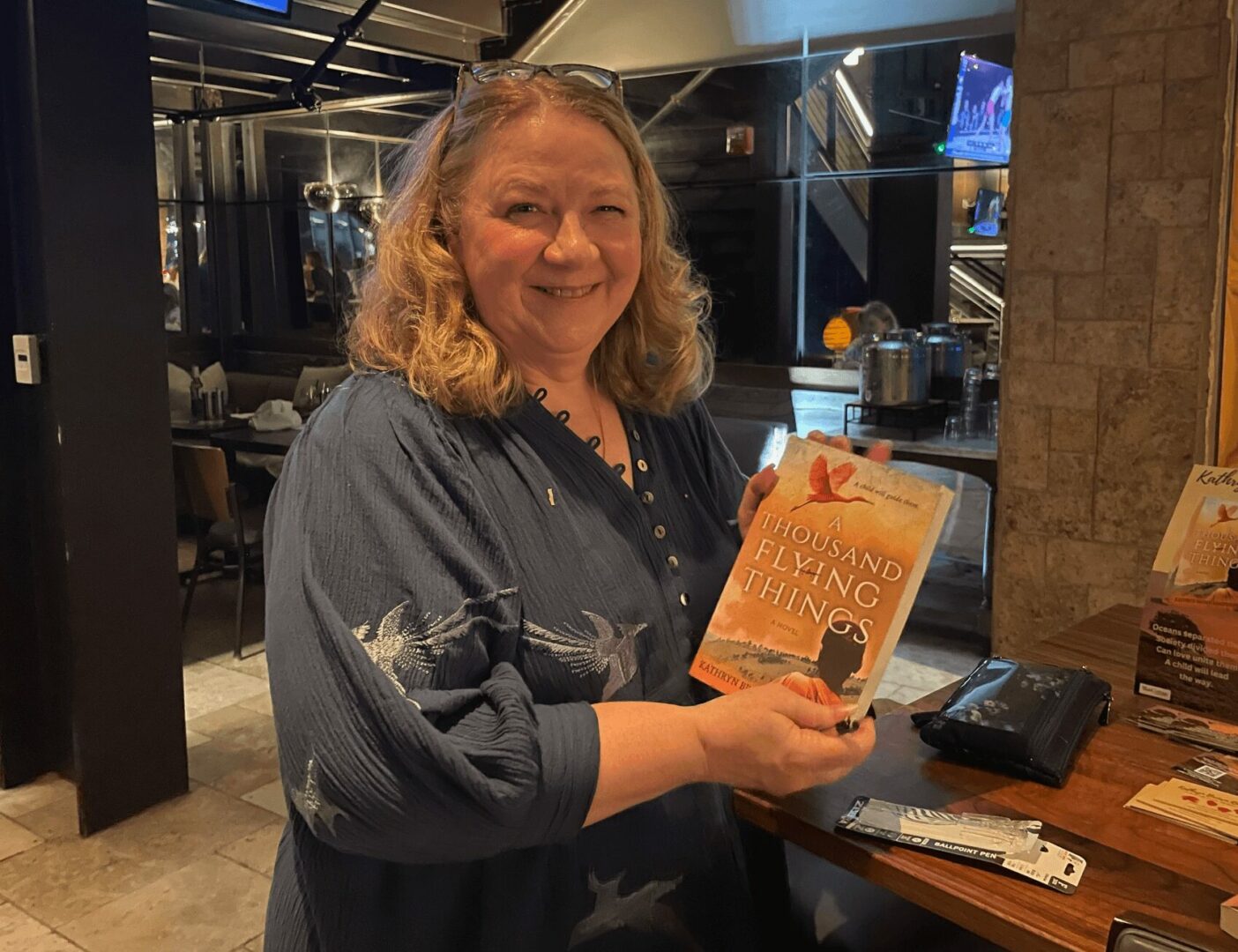
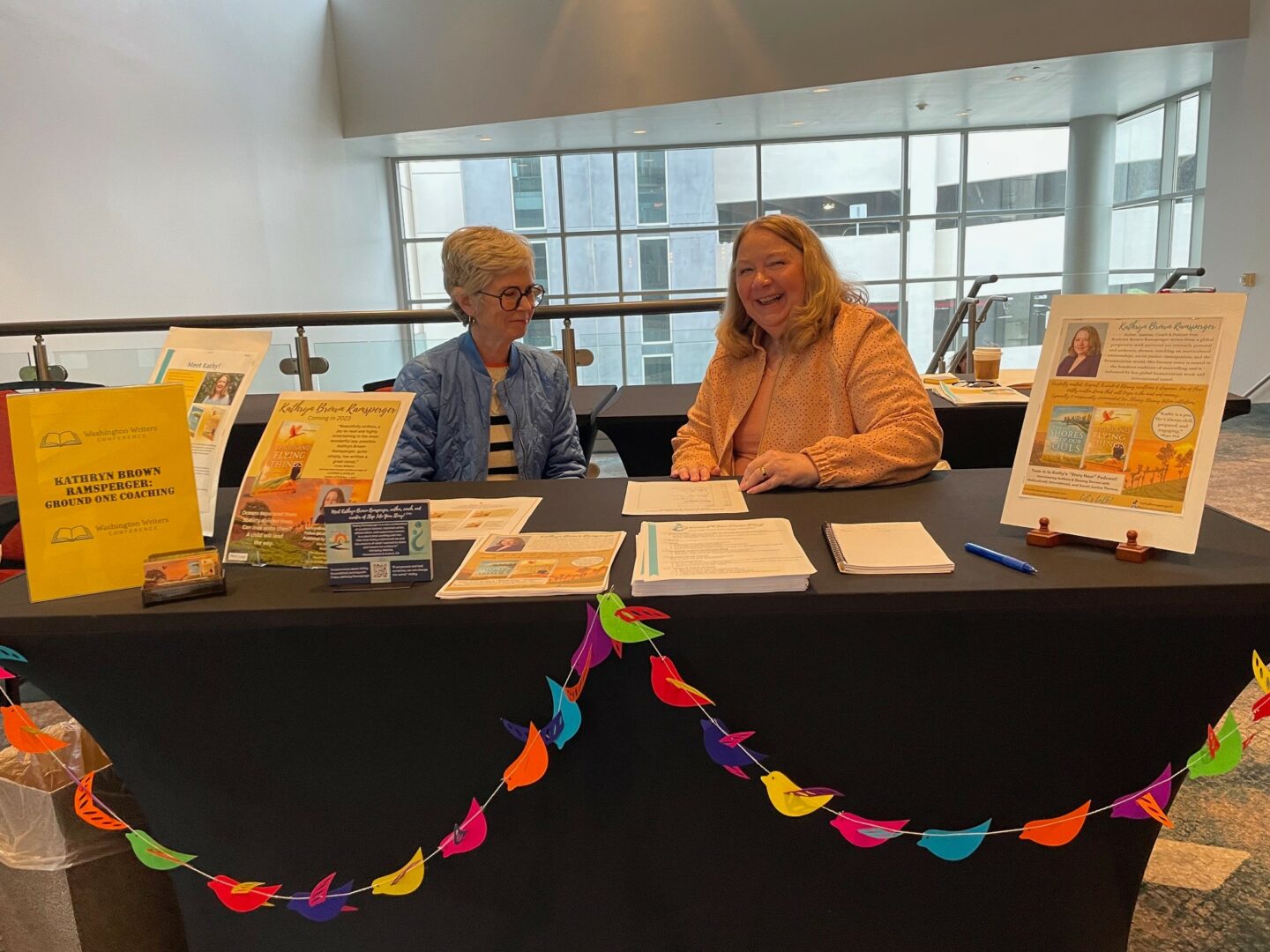
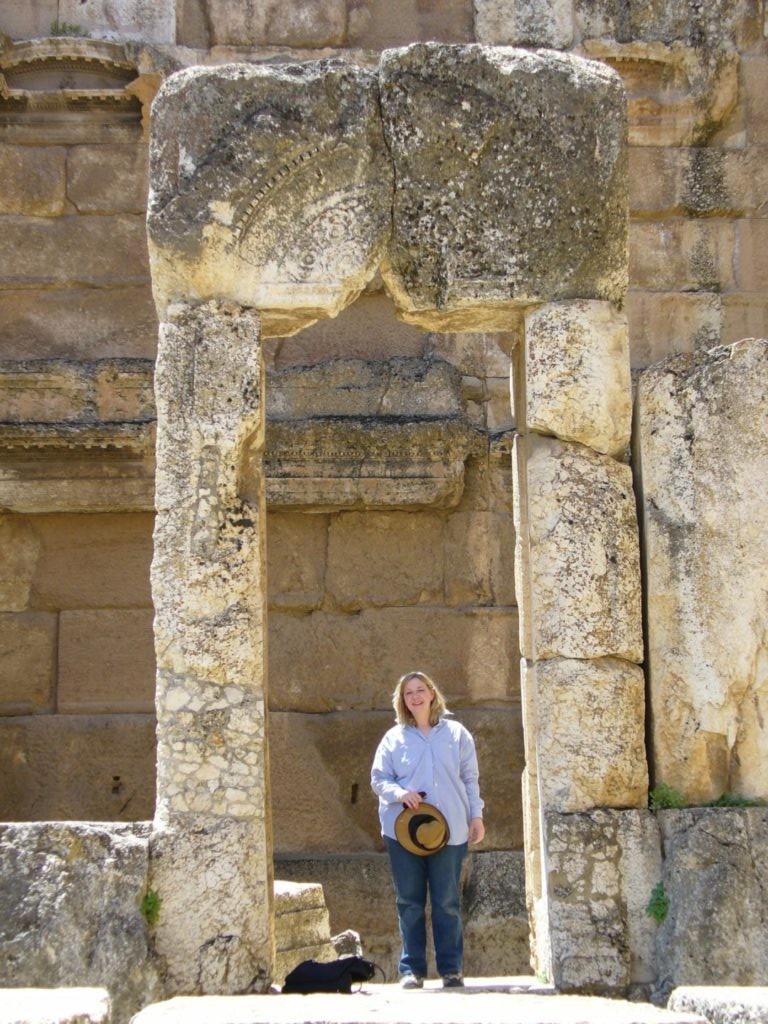
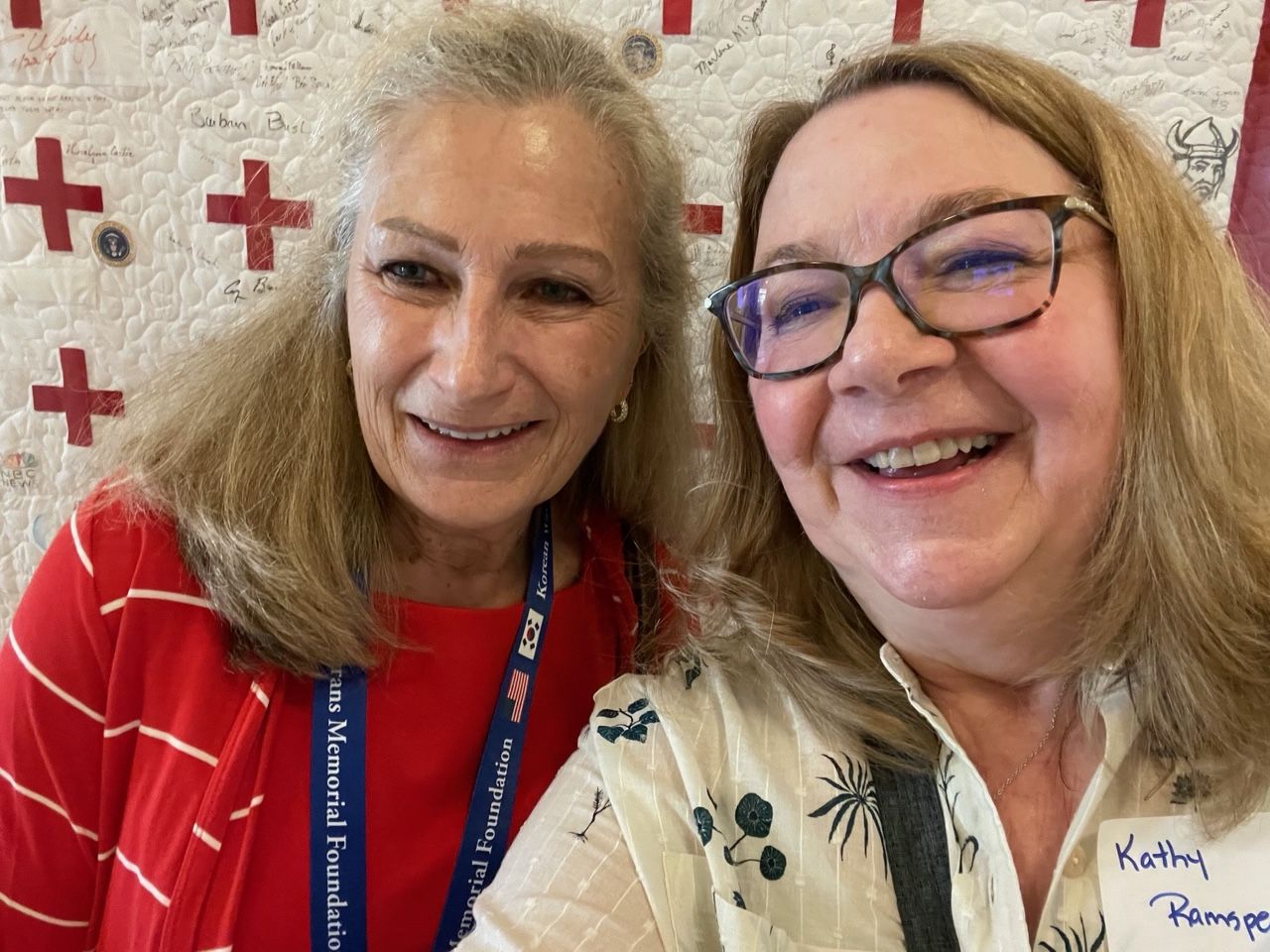
Image Credits
All photos were taken by myself, friends, or family.
so if you or someone you know deserves recognition please let us know here.

